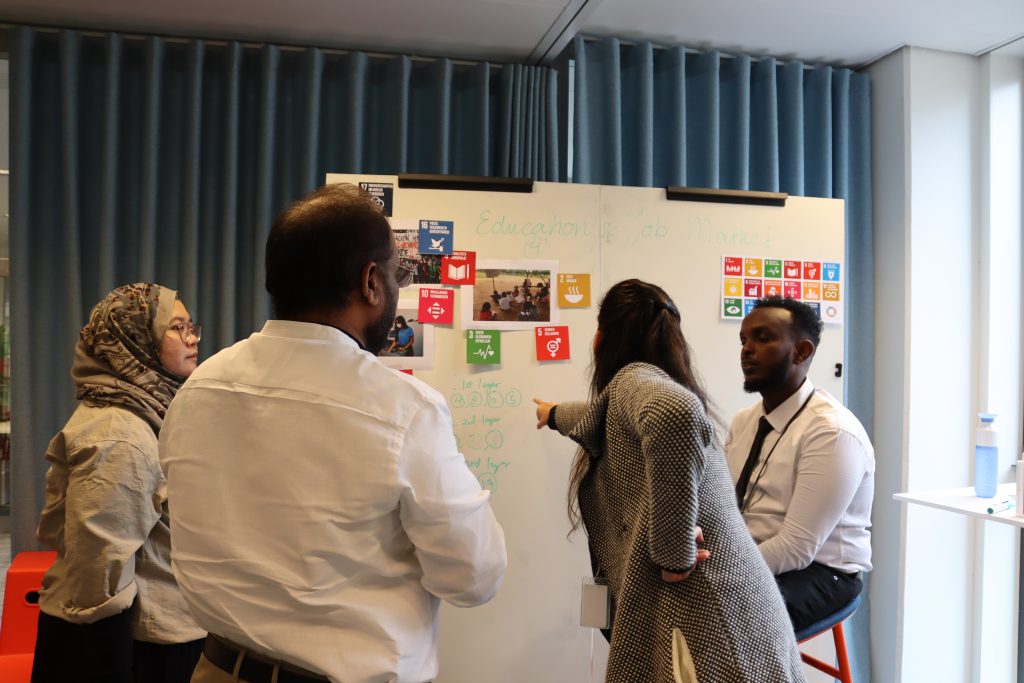On the opening day of the 12th World Urban Forum (WUF12) in Cairo, The Hague Mayor Jan van Zanen emphasised that the transformation for a better and more sustainable future occurs from the ground up: Localising the Sustainable Development Goals.
With the theme of It All Starts at Home: Local Actions for Sustainable Cities and Communities, WUF12 highlighted the critical role that local actors play in addressing global challenges such as housing, inequality, scarcity, conflict, and climate change. The Hague Academy and its partners have worked tirelessly on such issues like urban violence, climate resilience, and local economic development.

As President of the United Cities and Local Governments, Jan van Zanen joined a consortium of leaders at the World Assembly of Local and Regional Governments to call on global, regional, and local stakeholders to together pursue the Sustainable Development Goals (SDGs), promoting the Local SDG Rescue Plan. With the 2030 SDG deadline approaching, they advocated for increased multistakeholder collaboration and financing at the local level.
“Local and regional governments are crucial for achieving the 2030 Agenda,” shared van Zanen.
It is contextualised innovations and tailored solutions created by local practitioners that can help us reach these goals.
Localising the Sustainable Development Goals
Localising the SDGs entails adapting and implementing global goals in local contexts, with a focus on the specific priorities and resources of cities, towns, and communities. This approach aims to empower local governments and communities to take ownership of the SDGs and integrate them into urban planning, policies, and practices.
As Jan van Zanen spoke of The Hague: “We continuously seek the right balance, ensuring that green spaces in the city remain a priority. There’s also a strong emphasis on facilitating dialogue between residents and stakeholders, allowing for participation.”

At The Hague Academy, we encourage local practitioners to establish the multi-stakeholder connections necessary to both inform and finance local action plans.
Addressing Multiple Stakeholders – SDG Fund
WUF12 recognised the interconnectedness of global and local efforts, highlighting cross-sectional collaboration. It showed how local governments, private entities, and civil society work together on topics like affordable housing schemes and inclusive and resilient urban ecosystems. The event also covered financial mechanisms, such as the Joint SDG Fund, which has allocated resources to local projects in over 30 countries, demonstrating the value of dedicated funding in supporting local SDG initiatives.
Moreover, cities can reach out to actors at multiple levels of governance and across sectors to fiscally decentralise and become more resilient.
“It All Starts at Home”
WUF12 reiterated that cities are not passive recipients, but active drivers of SDG implementation. Localising the SDGs turns abstract global targets into actionable goals that address immediate urban challenges while also contributing to larger goals like poverty reduction and climate resilience. As UN-Habitat Executive Director Anáclaudia Rossbach stated, “real progress begins at the local level.”
Join Us!
Interested in reinforcing the local initiatives in your city and learning about localising the SDGs? Join our course on Urban Governance: Resilient and Smart Cities.

